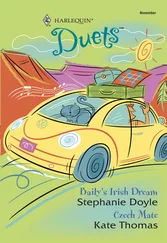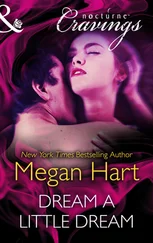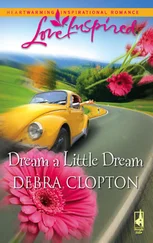It was the second time he had traveled the Hexi Corridor 2in Gansu Province. Unlike his first visit during the Cultural Revolution, this time it was different in that he rode a creaking bicycle on the Silk Road. For some inexplicable reason he had a special feeling for the area. When the scorching wind of the Gobi desert lifted his hair and burned his skin, he would delight at the sight of the crystalline peaks of the Qilian Mountains and the usual mirages that appeared and disappeared. For him it was an extreme pleasure, an unworldly enjoyment. Often he would forget himself and shout several times to hear the distant echo. He even dreamed of encountering a sandstorm that would swallow him and then spit him out far away. He lost his way in the sea of sand and wandered aimlessly. Surviving, he would think of this and a smile would appear on his cracked lips. To him it all seemed an impossible, extravagant dream.
It was the first time he had been to Dunhuang, though. During the Cultural Revolution, he had stopped at Yanguan Pass in Gansu. Bending over, the Red Guards had all started rummaging through the antiques at a stand looking for valuables. Their military pants had been washed white till they looked like patches of white mushrooms. One girl found a nice piece of Han dynasty tile, and showed it all around as if it were a great treasure, and then had slipped it quietly to Zhang Shu. Maybe I really am lucky in love? He smiled bitterly thinking about the women he had met in his life. But like smoke or mist, they were all vague and unclear.
5
Zhang Shu had not expected his soul to be so stirred by the bewitching experience of the Mogao Caves. He suddenly felt that what he had been dreaming about for years had arrived at that moment. He could not put his feelings into words at the time. It struck him that the only thing comparable was the first time he saw the ocean. He had been so excited that the first thing he felt like doing was to strip off his clothes and cast himself into the water and become a bubble on the vast and boundless sea.
Those beautifully molded lotus and canopy ceilings; those inverted wheel-shaped lotuses in the blue sky; those dancing clouds and spirals of scattered flowers; those floating scarves, gorgeous decorative designs like grapes, curling tendrils and patterns linked the walls; the beautiful heavenly musicians with their floating sleeves in rolling clouds formed interlocking patterns on the walls, that beautiful paradise of roiling cloud mist and dancing garments was filled with a foreignness, displaying a decorative taste both elegant and pure.
There were countless Jataka tales 3and stories from Buddhist legends and the sutras; there was a statue of the Maitreya Buddha 4thirty-three meters high; there was a huge fresco forty square meters in size depicting the magic competition of Raudraksha; there was a statue of a reclining Buddha entering nirvana measuring ten meters in length; and the countless flying apsaras 5, yakshas, rain gods, heavenly musicians, plumed races, devas, Indra, Brahma, bodhisattvas, and others of the eight classes. . like a waterfall in a deep and secluded valley surging with magnificent history, beautiful myths and wonderful legends, and majestic works of art.
Lashed by so much brilliant beauty, he felt dizzy.
Later, upon discovering that empty space in Cave 73, he was startled and found it unbearable, especially when he discovered from the necklace of jade and pearls that remained that it was once an exquisite fresco. When the old manager told him that it was a famous painting by the Tang dynasty monk, Yu-Chi Yiseng, titled Lakshmi Bathing , an unbearable curiosity, unlike anything he had experienced before, burgeoned in his heart. That night, he, who normally didn’t dream, had a dream. It was a misty mirage. The sea was in the foreground and out of the sea grew a lotus, rising from the heart of which was a crowned and naked auspicious goddess, reminiscent of The Birth of Venus . But the body of Venus was enveloped in a pure and holy light, and her beauty was of the sort that eliminated all feelings of lust; but Lakshmi, on the other hand, was like a living girl whose beauty inflamed the passions. What was even more startling to him was her big Flaubertian eyes, a frightened perplexity with a hint of malice. Who had endowed her with such eyes? That pair of eyes grew in size and finally swallowed him.
And the monk Yu-Chi Yiseng lived nine centuries before Botticelli! 6
“Isn’t the Eastern Buddha greater than the Western God,” he muttered as he dreamed.
6
It was out of loneliness that he approached the crude, old door in the dim light at dusk. He knocked on the door; she opened it and invited him in. Under the lamp, her just-washed face took on a transparent quality. She was happy as ever. When she spoke, she liked to grab her cap or some other object and fan herself, ever faster as she grew more excited.
“Some Jataka tales, those stories of the Buddha’s earlier incarnations, are just horrible!” She spoke excitedly about her first day at Dunhuang. “In order to save a mother tiger and her cubs, Prince Sattva had to hurl himself from a precipice so that the mother tiger could lap up his blood. Or there was King Shibi, who, in order to save a dove, stripped all the flesh from his body despite the tears and protests of his family. And then there was a Moonlight King who willingly did what that evil Brahmin wanted, whether being pierced with a thousand nails or cutting off his flesh to light a thousand lamps. Of course, all of this was later proven to be trials by Indra. But in the end all the wounds are healed, and they all revert to their initial happiness. Can this really be called a trial? Upon seeing their broken bones and torn flesh, would their families not wish to end their own grief and anger in death? Is the life of a family member less important than that of a tiger or a dove? In offering themselves to a tiger or stripping their flesh for a dove, wouldn’t they be afraid of harming their own family by sacrificing themselves? Of course these are extreme cases, but they are meant to promote the spirit of Buddhism. But I could never praise such sacrifices, because the recipient is not worth it. .”
“So you wouldn’t become a Buddha.”
“But the worst is the story of how Shakyamuni got Ananda to become a monk. It was pure coercion. He would stoop to any underhanded means. It was a complete violation of his human rights. But the love Ananda felt for his wife was something really worth admiring!”
Zhang Shu couldn’t help but laugh.
On his first day there, he too had seen the story of how Ananda became a monk depicted in a painting on a cave wall. It was in Cave 254, a work from the Northern Wei dynasty. Ananda was Shakyamuni’s own brother. He had a beautiful wife and was unwilling to become monk. Shakyamuni took him on a tour of Heaven to look at the goddesses and then to Hell to witness the punishments such as boiling criminals alive. Only by doing this a number of times did Ananda concentrate on the Buddha Dharma 7and become an arhat, one who has attained enlightenment.
“You have to be careful and watch what you say here lest you suffer the Buddha’s retribution and find yourself in the part of Hell where they cut your tongue out!” Seeing her so serious, he couldn’t resist teasing her.
“It’s not that I have anything against Shakyamuni Buddha.” The tone of her voice seemed to indicate that she sided with Shakyamuni. “This story, like the Jataka tales about his earlier incarnations, is nothing more than legend. Prince Siddhartha, the historical Buddha, is still great; the key here is that those who followed and explained his ideas had problems. Of all the Jataka tales, I feel only the one about the nine-colored deer is beautiful, because not only does it trumpet good deeds, but it also promotes rules for being on guard against evil and for doing good deeds. Hypocrisy is the inevitable result of humanity’s stubborn pursuit of good and denial of evil. People would be better off just acknowledging the existence of evil. Good and evil are twins and develop together; killing one will only result in the twisting of the human character. Preserving the integrity of the human character is the greatest beauty, and also the most difficult thing to accomplish. Actually, didn’t Siddhartha himself fail to finish the torment of six years of self-denial and mortification? If that shepherd girl hadn’t saved him with deer milk, he too would have died and could not have attained enlightenment under the Bodhi tree. If eating and drinking are not forbidden, then love should not be forbidden. Shakyamuni didn’t love his wife and became a monk, but Ananda loved his wife and shouldn’t have been a monk. Not loving his wife, Shakyamuni didn’t really sacrifice anything by leaving her. Staying would have been a distortion of human nature. But Ananda loved his wife, and Shakyamuni forced him to leave her and become a monk. Don’t you think that’s a distortion of human nature?”
Читать дальше
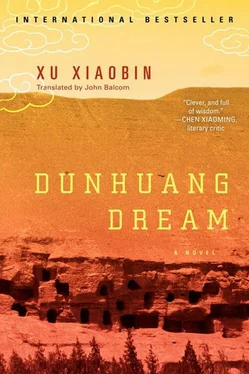


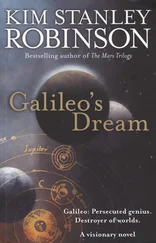
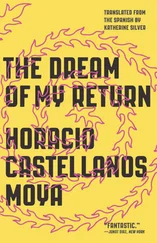

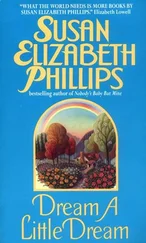
![Theresa Cheung - The Dream Dictionary from A to Z [Revised edition] - The Ultimate A–Z to Interpret the Secrets of Your Dreams](/books/692092/theresa-cheung-the-dream-dictionary-from-a-to-z-r-thumb.webp)
